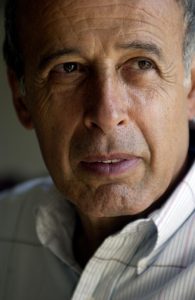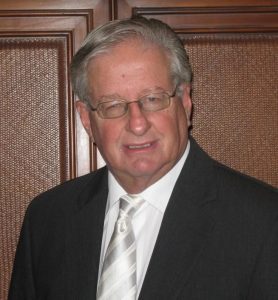The 24th Annual Conference
5 Ways to Foster Cultures of Active Bystanders at Home and in the Community
October 2, 2019
Peace & Harmony 2020
March 7, 2020In line with current recommendations surrounding COVID-19, and much to our disappointment, The Melissa Institute is postponing all in-person trainings and group events scheduled for the Spring. At this time, we do not have new dates scheduled, but we will keep you up to date as we move forward with our planning. Anyone who has previously registered will be refunded.
About the conference
During difficult social conditions, such as economic problems, political upheaval and great societal change, psychological and social processes can lead groups to turn against and victimize others (Ervin, 2016). How do we stop this process and encourage empathy, moral courage and altruism? Ervin Staub, Ph.D. addresses this issue from his years of experience in promoting peace and engaging individuals to become active bystanders. He has found that when individuals have developed an ability to care for the welfare of others who are not members of their own group and have the moral courage to speak out and act according to one’s values and beliefs in the face of potential or actual opposition, we can counteract these destruction forces that lead to harm doing and violence. In this conference, he will outline the ways to teach and foster these skills to reduce violence and promote peace.
The conference covers the principals of active bystandership, reconciliation after violence, altruism born of suffering, and promoting moral courage. Participants will learn how to help themselves and others overcome barriers and become “active bystanders” to be agents of change in their communities, increase inclusivity and promote peace. The talks will outline the tragic consequences of passivity by bystanders, as in the case of the evolution of hostility and violence that ends in mass killing or genocide and ways to prevent it.
Additionally, participants will learn the best practices and principles of reconciliation between groups after violence has occurred to help communities heal and prevent future violence. Included in this, is altruism born of suffering. This refers to people who after harm is done to them, do not withdraw or turn against others, but instead try to prevent or stop others’ suffering. The talks will describe experiences that help bring about altruism after suffering, which is crucially important since with many people suffering, without it we would live in an increasingly hostile world. Participants will also learn ways to apply “active bystandership” strategies in clinical practice from renowned expert Donald Meichenbaum, Ph.D.
Learning Objectives
Upon completion of this conference, participants will be able to:
- Learn about the influences that lead to violence, how hostility and violence evolve progressively and the development of active bystandership.
- Develop processes and activities that contribute to healing and reconciliation after group violence as well as reconciliation between individuals.
- Implement interventions to socialize children and train adults to become active bystanders to be agents of change in their communities, promote peace and prevent violence.
- Utilize active bystandership effectively in the treatment of survivors of trauma.


Ervin Staub, Ph.D., is Professor Emeritus and Founding Director of the doctoral program in the Psychology of Peace and Violence at the University of Massachusetts, Amherst. In addition, he taught at Harvard. He is past President of the International Society for Political Psychology and of the Society for the Study of Peace, Conflict and Violence. His last two books are the award winning Overcoming Evil: Genocide, Violent Conflict and Terrorism, 2011 and The Roots of Goodness and Resistance to Evil: Inclusive caring, moral courage, altruism born of suffering, active bystandership and heroism, 2015. He engaged with varied “real world” projects, including work with teachers/schools and parents to promote altruism in children, projects in Rwanda, Burundi and the Congo to promote reconciliation, in Amsterdam to promote positive Dutch-Muslims relations, and training of police to develop active bystandership by officers to stop other officers from doing unnecessary harm, and of students to stop harmful actions by fellow students.

Donald Meichenbaum, Ph.D., is Research Director of The Melissa Institute and Distinguished Professor Emeritus at the University of Waterloo in Ontario. He has served as Distinguished Visiting Professor at the School of Education at the University of Miami. He is one of the founders of cognitive behavior therapy. North American clinicians voted Dr. Meichenbaum “one of the 10 most influential psychotherapists of the 20th century.” He has presented in all 50 states and internationally. Dr. Meichenbaum has published extensively, and his most recent book is The Evolution of Cognitive Behavior Therapy: A Personal and Professional Journey with Don Meichenbaum. Other books include Roadmap to Resilience: A Guide for Military, Trauma Victims and Their Families; Treatment of Individuals with Anger-control Problems and Aggressive Behavior; Treating Adults with Posttraumatic Stress Disorder; Nurturing Independent Learners; and Stress Inoculation Training.
